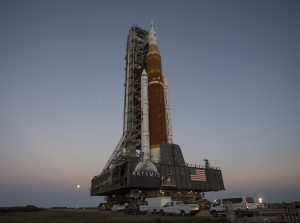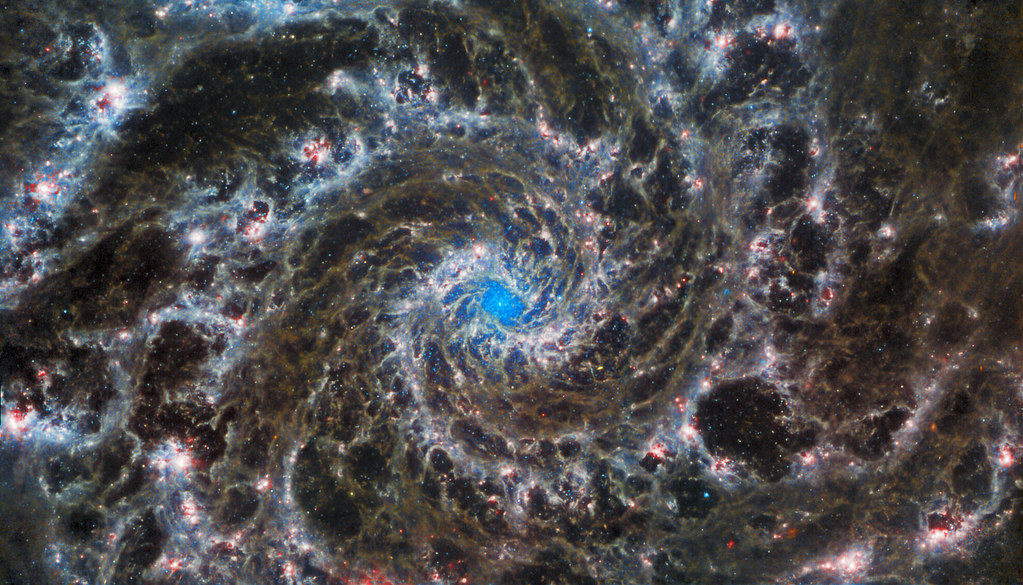On February 22, 2024, NASA partnered with the private companies Intuitive Machines and SpaceX for the first moon landing by the United States in over 50 years.
I was sitting in my kitchen, eagerly watching the broadcast on my phone, when I texted my friends to ask if anyone else was watching. In response, I received the nerd emoji and was told that no one cares. I tried to explain the importance of this mission, and a small (light-hearted) argument was started.
Some of my friends believed that going back to the Moon was a waste of taxpayer money and that instead of exploring space, we should focus on issues on Earth. This got me thinking about how much public and financial support the space program used to have. Where has that support gone?
According to The Guardian, in 1966, 4.41% of US spending was on space exploration; in 2015, this number had dropped to 0.47%. Public approval has also gone down. According to the Pew Research Center, At their height, nearly 80% of the American public supported both the space shuttle and Apollo programs. Today, 43% of Americans believe Mars exploration is unimportant and should not be done, and another 45% believe it should not be a top priority. These numbers are similar to those of the Artemis program (return to the Moon).
Since the end of the shuttle program, due to a lack of funding, the US has had to rely on spacecraft from Russia and, more recently, private companies to get to space. The new SLS (space launch system) and Orion capsule should have been an exciting breakthrough, sparking public interest. Instead, many people don’t know about their existence due to a lack of interest and publicity.

Exploring space is essential for humans to continue to advance and thrive as a species. Eventually, with our growing population, the earth and its resources will not be able to accommodate humans. Having a backup planet (or planets) will help to ensure the continuation of the human race.
The impact of an asteroid has the potential to cause a mass extinction event. New technologies developed by NASA can redirect or destroy dangerous asteroids. If we want to survive, we must take these threats seriously and invest in these technologies.
Some may say NASA’s annual funding of 24 billion dollars is too much and a waste of taxpayer money. While this number does seem significant, it is tiny compared to the funding received by other government programs, such as the military. According to the US Department Of Defense, in 2023, a bill was passed that increased the military budget to 816.7 billion dollars. Even the US space force, an agency that has yet to send humans to space, receives more funding than NASA (30 billion dollars in 2024).
These numbers demonstrate how Americans are more willing to spend their money on violence than on the advancement of the human race. This is not to say that having a strong military isn’t necessary or that the military is overfunded; it is just to make a point about the disparities in funding.
There has recently been a rise in private space companies, leading many to believe that NASA is no longer necessary for space exploration. I disagree with this because if properly funded, a government agency has much more resources, creating more possibilities for exploration and the development of new technologies. Making these great advancements as a country could help to create a sense of unity and national pride at a time when the United States is so divided.
NASA and other space programs are essential for our continued advancement as a society. Next time you see an article about new space technology or happen to see that there is a rocket launch happening, check it out. The only way we can keep growing and exploring is if people educate themselves and get excited about these new advancements.














